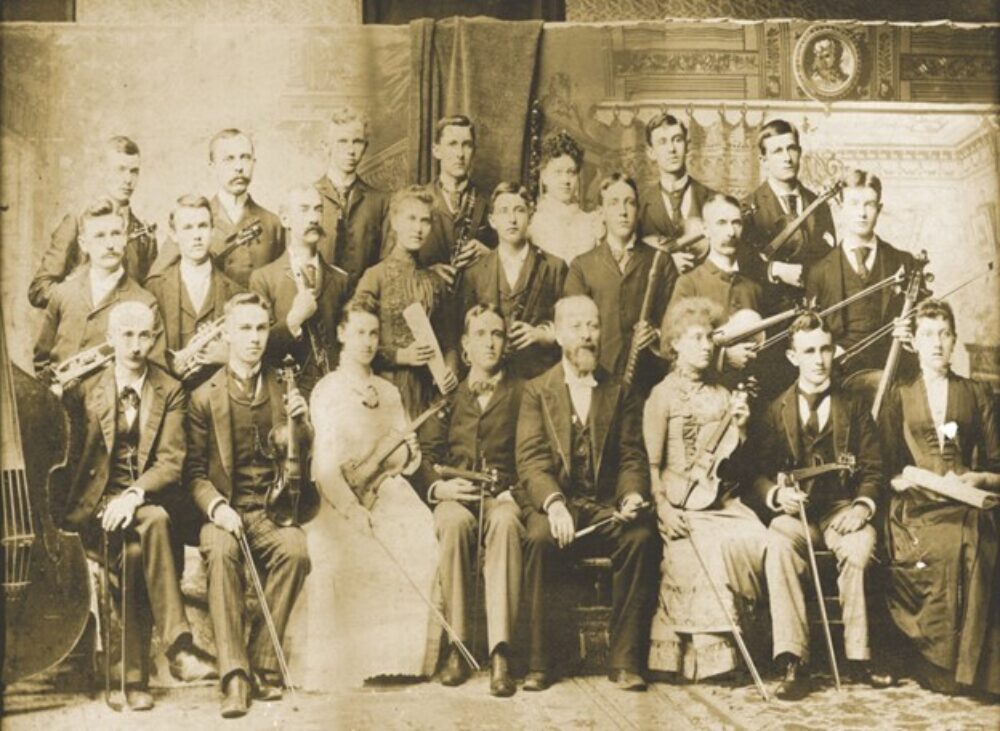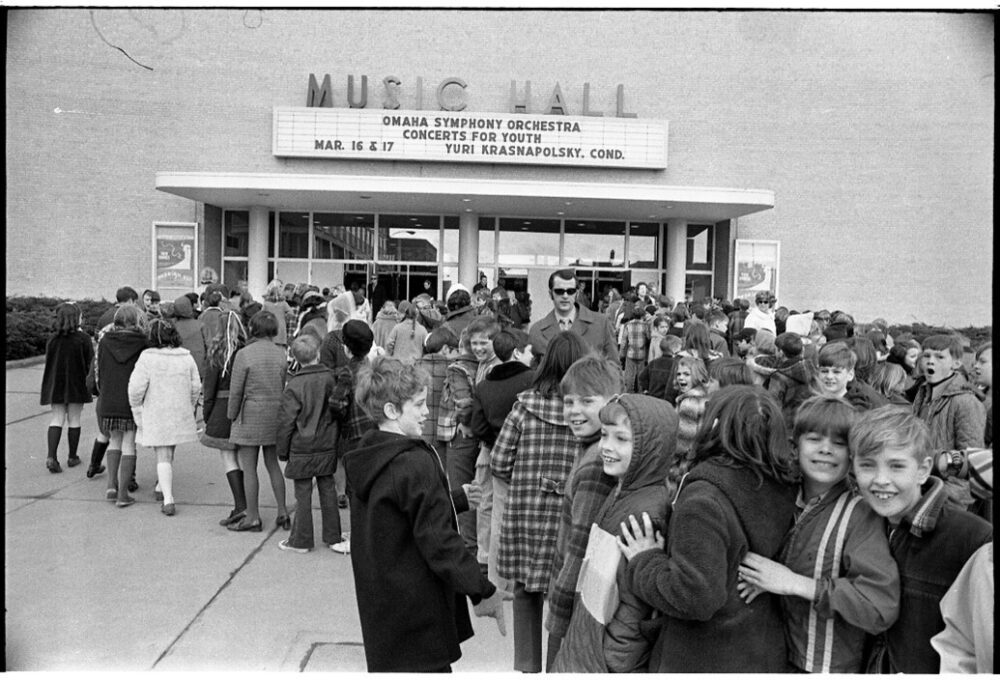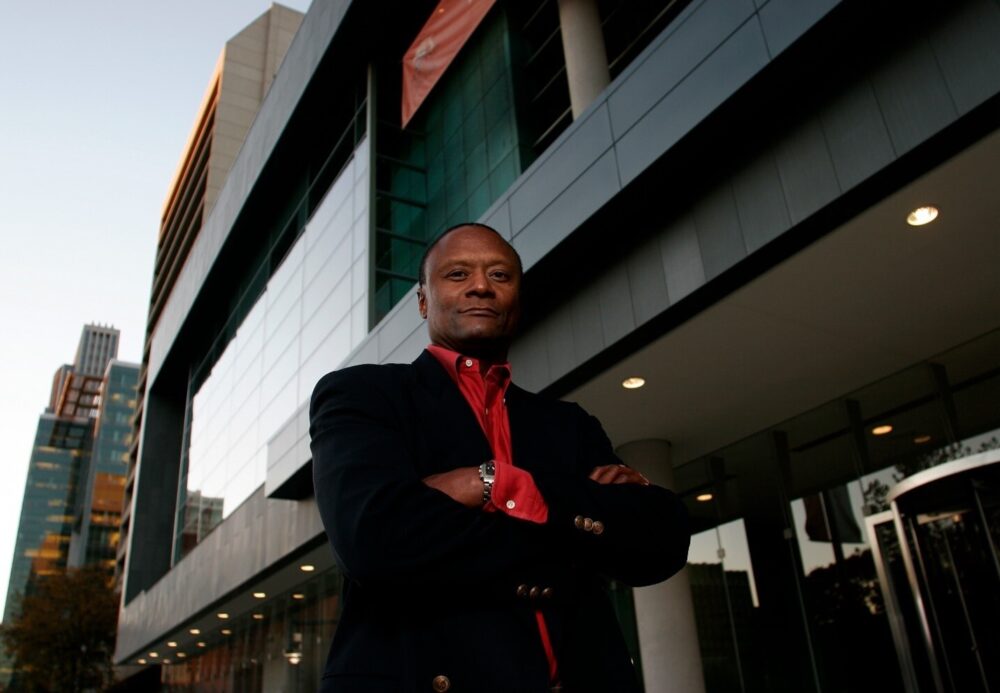Symphony History
The Omaha Symphony has been an essential resource for orchestral performances, musical entertainment, and music education for over a century.
Founded in 1921, the Omaha Symphony's virtuosity and versatility are showcased in four distinct concert series: Masterworks, Symphony Joslyn, Family Series, and LIVE with the Omaha Symphony, which brings popular music, dynamic performers, movies, and more on stage with the orchestra. In addition to mainstage performances, the orchestra – now with a core of 41 full-time musicians augmented by 29 contracted players –performs a wide array of nationally-recognized education and community engagement programs that annually reach many thousands of people, of all ages, throughout the region.
Inception: 1921-1947

There were several civic orchestras in Omaha prior to the 1920s, but from its establishment in March 1921 under the leadership of Henry Cox, the Omaha Symphony aspired for higher levels of musical artistry and talent. The community’s acceptance was so encouraging of the “new” symphony that the famed Sandor Harmati was brought in by the women’s division of the Omaha Chamber of Commerce to conduct the 1925/26 season. In 1930, Joseph Littau took over conducting the orchestra for two years due to Harmati’s illness.
The symphony thrived until the Great Depression caused a suspension of operations in 1932. Performances returned with short seasons beginning in the 1936/37 season under the direction of Rudolph Ganz. However, the symphony was again forced to close during World War II when conductor Richard Duncan and other musicians enlisted for service. After the war, Henry Doorly of the Omaha World-Herald, the Associated Retailers of Omaha, and the Omaha Junior League rebuilt the orchestra as a full symphony under the direction of Duncan.
Expanding in the Community: 1947-1984
This new symphony performed its first concert on February 10, 1947. Duncan continued to expand the orchestra’s activities until 1958 when he passed the conductor’s baton to Joseph Levine.
Levine led the Omaha Symphony’s promotion of classical music in the Midlands, which included the establishment of the Omaha Youth Symphony Orchestra and the Omaha Symphonic Chorus. Additionally, from 1966 to 1968, Levine led the implementation of a Ford Foundation grant enabling the symphony to tour outside Omaha and create a music program designed especially for children — known as the Omaha Symphony’s Concerts for Youth — which continues to be a community treasure today.

The assistant conductor of Leonard Bernstein’s New York Philharmonic, Yuri Krasnapolsky, took the podium as the new music director in 1970. Krasnapolsky began the beloved Pops series and oversaw the establishment of in-school ensemble concerts in 1971.
It was Thomas Briccetti, the nationally recognized composer and conductor appointed music director in 1975, who developed the Omaha Symphony into a true professional orchestra with a "core" of 30 full-time salaried musicians augmented with a group of part-time players.
Modernization: 1984-2017
The core increased to 35 members when Bruce Hangen joined the Omaha Symphony in 1984 as music director. Before he left the Omaha Symphony in 1995, his interest in musical and cultural diversity was realized with the world premiere of Ceremonial Images (1992), a nationally acclaimed composition commissioned by Hangen, featuring Native American singers and tribal drummers.
In 1995, Russian-born conductor Victor Yampolsky took up the baton as music director. Under the leadership of Yampolsky, the core orchestra expanded to 39 musicians, and the Omaha Symphony recorded and produced its first compact disc, Take Flight.

The 2005/06 season featured the introduction of new music director Thomas Wilkins and the orchestra’s move into its new home, the Holland Performing Arts Center, a world-class venue esteemed for “its rich sound, excellent sightlines, and striking interior… a new icon for the city,” according to Architectural Record.
Under Wilkins’ leadership, the orchestra expanded its concert offerings, increased the size of the core orchestra, renewed its commitment to education and community programs, and embarked on ambitious workshops with young composers and journeyman conductors.
In 2015, Ernest Richardson was named the Omaha Symphony’s principal pops conductor. Richardson, who first joined the symphony in 1993 as assistant conductor and later rose to the role of resident conductor, has been instrumental in guiding the organization’s educational mission. He also built the orchestra’s annual Christmas concerts into a major Broadway-caliber production, the popular Physicians Mutual Omaha Symphony Christmas Celebration.
Commitment to Innovation: 2017-Present
In 2017 and 2018, the Omaha Symphony produced its first CDs in more than 15 years, featuring live performances of the orchestra under Wilkins’ baton – the first of Rimsky-Korsakov’s Scheherazade and the second of Beethoven’s Ninth Symphony. In 2020, the alternative rock group Guster released OMAGAH! Guster with the Omaha Symphony, a live recording of the band and the orchestra performing together at the Holland Center.
Thomas Wilkins’ successor as music director was announced in June of 2020, as the Omaha Symphony prepared to launch its 100th Anniversary season and celebrate the finale of Wilkins’ exceptional 16-year tenure. Acclaimed conductor Ankush Kumar Bahl was named music director designate after a multi-year international search and began his tenure in July 2021.
On March 17, 2023, the Omaha Symphony performed a world premiere of GRAMMY Award-nominated composer Andy Akiho’s piece written to honor visual artist and Omaha icon Jun Kaneko. Commissioned by the Omaha Symphony, the work incorporated Kaneko’s sculptures on stage, which Akiho played as percussive instruments.

The world premiere performance was recorded and released as an album in September 2023. The album received three GRAMMY nominations in 2024: Best Classical Instrumental Solo, Best Classical Compendium, and Best Contemporary Classical Composition.
With a strong, ongoing commitment to meeting the needs of its community and its concertgoers, the Omaha Symphony looks forward to bringing the power and beauty of live orchestral music to audiences for generations to come.